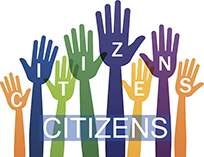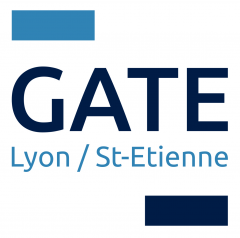Citizens' implication in local public decisions


Scientific objectives
The project aims at addressing the relationship between decentralization and democracy by assessing how the different forms of decentralization and the different modalities of governance may reconcile citizens and politics at the local level. We want to explore the political consequences of decentralization on the electoral participation, whether electoral systems favour or infringe the perception of closeness between citizens and the administration or elected authorities, or which design of the deliberative process may improve citizens empowerment. The research team of Citizens will combine different approaches – econometric tools, axiomatic and computational approaches, and experimental economics – to contribute to this rapidly evolving field of research on the quality of democracy at the local level.
Full description Project_Citizens
List of participants
- Sonia Paty (GATE) - Scientific coordinator
- Vincent Merlin (CREM) - Partner's scientific leader
- Antoinette Baujard (GATE)
- Sylvain Bouveret (LIG)
- Federica Ceron (GATE)
- Stéphane Gonzalez (GATE)
- Jérôme Lang (LAMSADE)
- Isabelle Lebon (CREM)
- Benoît Le Maux (CREM)
- Dominik Peters (LAMSADE)
- Remzi Sanver (LAMSADE)
- Benoît Tarroux (GATE)
Work in progress
- Approval voting versus proportional threshold methods: so far and yet so near. Susumu Cato, Stéphane Gonzalez, Eric Rémila and Philippe Solal
- The power index curse strikes again. Zineb Abidi and Vincent Merlin
- Participatory Budgeting: Data, Tools and Analysis. Piotr Faliszewski, Jaroslaw Flis, Dominik Peters, Grzegorz Pierczynski, Piotr Skowron, Dariusz Stolicki, Stanislaw Szufa, Nimrod Talmon, IJCAI 2023: 2667-2674
- Federica Ceron, Stéphane Gonzalez, Adriana Navarro Ramos, Axiomatic Characterization of the Knapsack and Greedy Budgeting Rules.
- Determinants of electoral turnout and policy implications: a literature review. Pauline Mille
- Decentralization and the size of local assemblies: the Cube Root Law Extended. Benoît Le Maux, Pauline Mille and Sonia Paty
- Integration among municipalities and voter turnout: evidence from a quasi-natural experiment in France. Edoardo Di Porto, Angela Parenti and Sonia Paty
Upcoming events
Conference meeting in Rennes, 2024 June 18
Past events
Session JECO - Implication des Citoyens dans la décision locale, 16 septembre 2023, Lyon 2

Voter oui mais comment ? Festival international des idées de demain à la Gaité Lyrique, 21 octobre 2023, Paris, photo
Journée Prospective URBAIN de l'InSHS, Marseille, 2 juin 2023, Poster CITIZENS
Kick off meeting: 2023 April 4, Lyon-Ecully, Program
